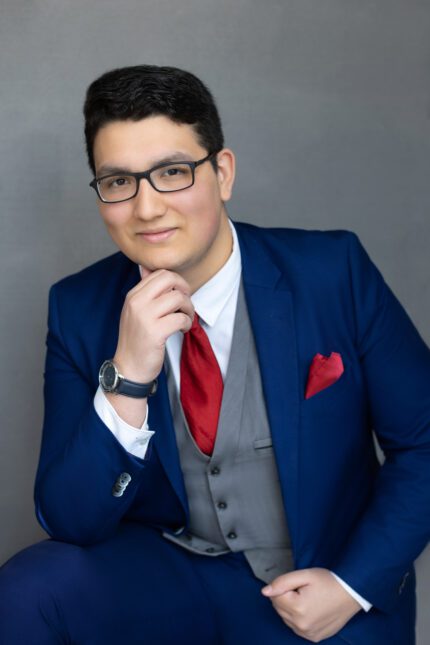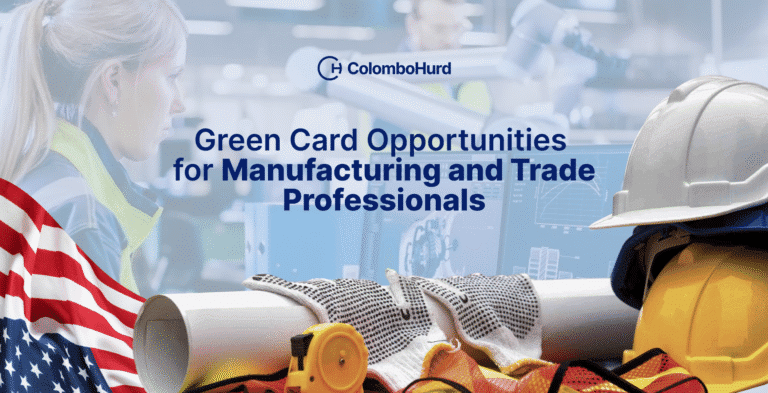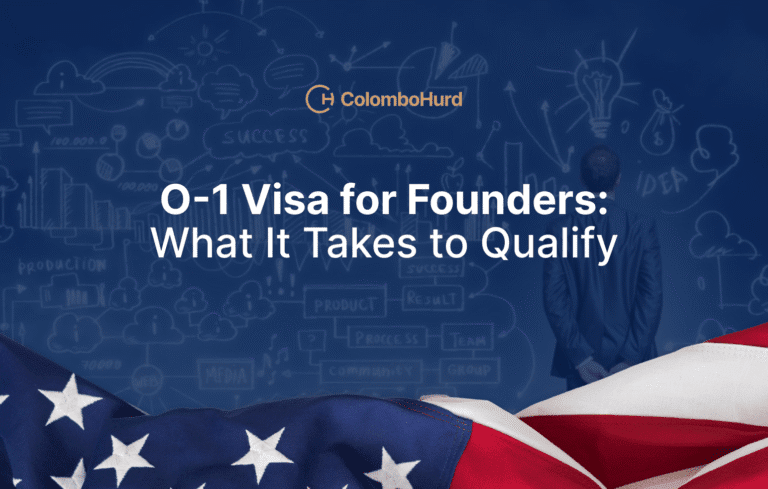Trade Policy Creates Immigration Opportunities for Manufacturing Professionals
The United States is experiencing significant attention to its manufacturing sector, driven by policy focus on domestic production and substantial investments. With the “America First Trade Policy” executive order, professionals in areas such as advanced manufacturing, supply chain management, and trade policy now have stronger arguments for self-sponsored immigration under the EB-2 National Interest Waiver (NIW).
This policy specifically emphasizes promoting investment and productivity, enhancing industrial and technological advantages, and benefiting American workers and businesses. These stated goals provide manufacturing and trade professionals with clear language to demonstrate how their work aligns with the EB-2 NIW pathway when pursuing permanent residency in the United States.
Manufacturing Sector’s Economic Significance Supports National Interest Arguments
The U.S. manufacturing sector’s significant contribution to the country’s economy, accounting for 10% of the U.S. gross domestic product and adding $2.93 trillion to the economy in the third quarter of 2024, highlights the need for skilled professionals in this field. The record $1.6 trillion in U.S. exports of manufactured goods in 2023 further demonstrates the sector’s importance to national economic objectives.
These economic indicators provide valuable context for NIW petitions, particularly when addressing the “national importance” element that USCIS frequently scrutinizes in these applications.
Major Investments in Manufacturing Create Context for NIW Petitions
The policy emphasis on American manufacturing has coincided with significant announced investments in U.S. manufacturing facilities. These investments provide concrete evidence of areas where specialized expertise may serve the national interest:
- Taiwan Semiconductor Manufacturing Company (TSMC)’s $100 billion investment in U.S.-based semiconductor chip manufacturing
- Eli Lilly and Company’s $27 billion investment in its U.S.-based manufacturing
- Clarios’ $6 billion plan to expand its U.S.-based manufacturing
- Stellantis’ $5 billion investment to reopen its Belvidere, Illinois, assembly plant
- GE Aerospace’s $1 billion investment in its manufacturing operations across 16 states, creating 5,000 new jobs
- GE Vernova’s $600 million investment in its U.S.-based factories, creating over 1,500 new jobs
- Diageo North America’s $415 million investment in a new Alabama manufacturing facility
- Eaton’s $340 million investment in a new South Carolina-based manufacturing facility
- Siemens’ $285 million investment in U.S. electrical product manufacturing, creating over 900 new skilled manufacturing jobs
- ABB’s $120 million investment to expand production of its low-voltage electrification products in Tennessee and Mississippi
- Saica Group’s $110 million investment in a new manufacturing facility in Anderson, Indiana
These investments highlight areas where manufacturing expertise may be particularly valuable and provide specific industry contexts that can strengthen NIW petitions.
Recent NIW Approvals for Trade and Manufacturing Professionals
Colombo & Hurd has successfully secured EB-2 NIW approvals for several trade and manufacturing professionals, demonstrating the viability of this immigration pathway. These approvals showcase how professionals with specialized expertise can effectively present their qualifications within the current policy framework.
Colombo & Hurd Immigration Attorney David A. Santiago explains our approach to these cases:
“I always tell clients, especially in the trade and manufacturing field, that specifically detailing how you will better logistic and supply chain processes, promote innovative strategies and technological advancements within the field, and explain how you can implement these strategies to better the United States through your proposed endeavor will help us strengthen your EB-2 NIW case.”
Notable recent approvals include:
- A client from Nigeria whose endeavor is to strengthen the United States’ international trade capacity, specifically in the food and beverage sector, and to expand international market access for small and medium-sized American manufacturing companies.
- A client from Egypt whose endeavor is to revolutionize additive manufacturing processes and elevate material performance, primarily in the energy and manufacturing sectors, by pioneering innovative solutions such as graphene batteries, supercapacitors, and graphene-enhanced Wire EDM technology, with a focus on bridging the gap between industries and graphene suppliers to contribute significantly to a more sustainable and efficient future.
- A client from Mexico whose endeavor is to design and implement highly customized and efficient production systems tailored specifically for small and medium-sized manufacturers across the United States, revolutionizing their production processes.
These approvals demonstrate the potential for trade and manufacturing professionals to obtain NIW approvals and secure green cards in the United States.
EB-2 NIW Opportunities in Manufacturing and Trade
The EB-2 NIW pathway offers a unique opportunity for manufacturing and trade professionals to obtain permanent residency. With the current policy emphasis on domestic manufacturing and trade, individuals with expertise in these areas may be well-positioned to address the “national importance” requirement that USCIS frequently scrutinizes.
Mr. Santiago provides insight on how current policies can benefit EB-2 NIW petitioners:
“The emphasis on boosting the national economy through domestic manufacturing initiatives and trade advancements for American products and services has been a benefit for our clients. They can show through their EB-2 NIW petition that they are a strong professional within their field and that they can integrate better strategies and optimize the trade and manufacturing sector in the United States through their proposed endeavor. The key is that we help our clients pinpoint the section of their industry that they have succeeded in and present the economic and technological benefits that they will bring to the entire U.S. economy.”
Manufacturing and Trade Specialties That May Benefit from Current Policies
The current focus on domestic manufacturing and trade presents opportunities across a wide spectrum of specialties. Here are some of the many areas where foreign professionals may find stronger support for NIW petitions:
Supply Chain and Logistics Expertise
- Supply chain resilience and risk mitigation
- Nearshoring and reshoring implementation experts
- Advanced inventory management systems
- Just-in-time manufacturing optimization
- Cross-border logistics and customs management
- Multi-modal transportation optimization
Quality Control and Compliance
- Advanced quality assurance methodologies
- Statistical process control implementation
- Regulatory compliance across international markets
- Six Sigma and lean manufacturing specialists
- Quality management systems design
Specialized Production Processes
- Semiconductor and microchip fabrication
- Pharmaceutical and medical device manufacturing
- Aerospace and defense component production
- Automotive manufacturing and assembly optimization
- Clean energy and battery production
- Advanced materials development and implementation
Manufacturing Analytics and Optimization
- Production efficiency analysis and improvement
- Energy consumption optimization in manufacturing
- Predictive maintenance implementation
- Manufacturing cost reduction strategies
- Data-driven decision making in production environments
Trade Development and International Business
- Export market development for U.S. manufacturers
- International trade agreement navigation
- Cross-border partnership development
- Market entry strategy for American products
- Trade finance and risk management
- Global sourcing and procurement optimization
Advanced Manufacturing Technologies
- Artificial intelligence and automation in manufacturing
- Advanced robotics systems and machine learning integration
- Internet of Things (IoT) implementation for production monitoring
- 3D printing, additive manufacturing, and rapid prototyping
- Smart factory design and implementation
The EB-2 NIW pathway requires that a petitioner’s proposed project must be in the national interest. Given the current policy goals and investments in U.S. manufacturing, professionals across these diverse manufacturing and trade specialties have stronger arguments for meeting this requirement, particularly when their skills align with areas receiving significant investment and policy attention.
The “America First Trade Policy” executive order, recent investments in U.S. manufacturing, and the overall significance of the manufacturing sector to the U.S. economy present a favorable environment for qualified foreign professionals to pursue self-sponsored immigration under EB-2 NIW.





